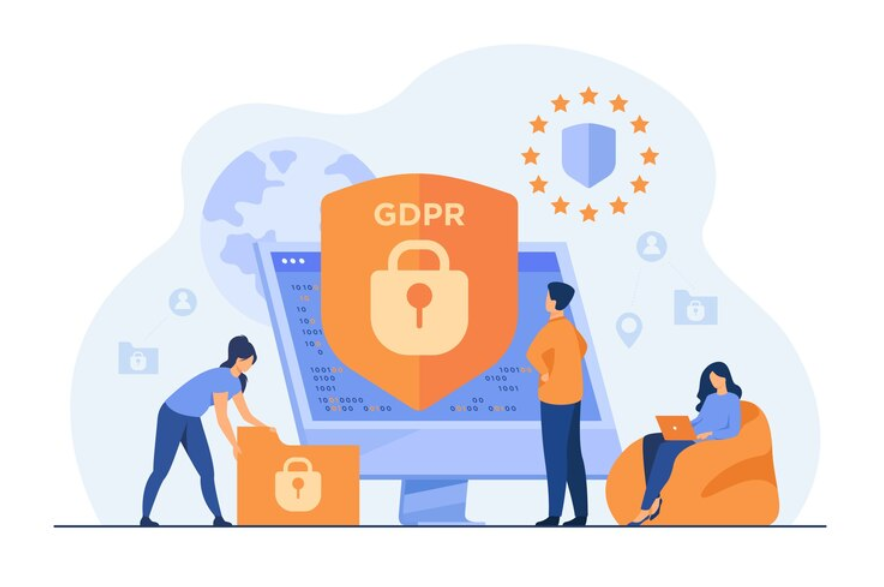The Cold Email Dilemma in Germany: A Risky, Effective, but Also Highly Illegal Approach
Cold emailing has long been a popular marketing strategy for businesses worldwide. Its ability to deliver quick results by reaching potential clients directly is undeniably attractive. But while cold email campaigns can be a highly effective tool for lead generation, they come with serious risks—especially in Germany. Due to strict regulations, what works in one market may be outright illegal in another. In Germany, unsolicited email outreach without explicit consent is considered a violation of the law, potentially leading to severe penalties, including hefty fines and cease-and-desist orders.
In this article, I’ll share my thoughts on the legality of cold emailing in Germany, why it’s such a tricky marketing tactic, and the alternatives businesses should consider. Ultimately, the choice comes down to weighing the risk of cold emailing against the benefits. But remember, building a business on an illegal foundation is a strategy that could backfire.
Why Cold Emailing is So Effective – But Also Illegal
Cold emailing is effective because it allows businesses to reach prospects directly and at scale. A well-targeted email campaign can land directly in the inbox of decision-makers, opening up conversations that could lead to valuable business relationships. For companies that know how to craft persuasive emails and target the right audience, cold emailing has proven to be a cost-effective way to generate leads and increase sales.
However, in Germany, cold emailing faces a significant legal hurdle: the UWG Gesetz gegen den unlauteren Wettbewerb (Unfair Competition Act). The law explicitly prohibits sending unsolicited emails without prior consent, meaning cold emailing is considered illegal. The reasoning behind this law is tied to consumer protection. In a market where trust and respect for privacy are paramount, businesses must have explicit permission from the recipient before initiating contact. Otherwise, they risk being seen as intrusive, aggressive, and, ultimately, in violation of the law.
This creates what I see as a sword with two sides: On one hand, cold emailing can be highly effective, allowing businesses to connect directly with potential clients. On the other hand, it’s illegal in Germany, and companies that violate these laws may find themselves facing cease-and-desist notices and fines that can run into the thousands of euros.
What Happens If You Send Cold Emails in Germany?
The risks associated with cold emailing in Germany aren’t just theoretical. If you send unsolicited emails to businesses or consumers in Germany, you are violating the UWG. The typical consequence of such a violation is receiving a cease-and-desist notice (Abmahnung). This is a formal legal demand that requires you to immediately stop the illegal activity, and it often includes a fine or compensation request.
Here’s what you can expect if you send cold emails without consent:
- A Cease-and-Desist Notice: The first legal step is usually an Abmahnung, which demands that you cease the illegal email activity. These notices often come with the requirement to pay legal costs, and failure to comply can result in further legal action.
- Fines and Penalties: Violating Germany’s email marketing laws can result in fines that range from a few hundred to several thousand euros per email. Repeat offenses could lead to even more significant financial penalties.
- Legal Battles: If the recipient of your emails decides to escalate the issue, you could find yourself in court, facing even larger fines and further legal consequences.
- Reputational Damage: German businesses and consumers value transparency and privacy. Being known as a company that disregards legal standards could damage your brand and affect long-term business prospects.
The Legal Landscape: Germany’s UWG and GDPR
To understand why cold emailing is such a problem in Germany, it’s important to grasp the legal framework at play. The UWG is part of Germany’s strict legal stance on marketing, but it’s not the only law to consider. The General Data Protection Regulation (GDPR), which applies across the European Union, adds another layer of complexity by governing how businesses handle personal data.

Under the GDPR, businesses must have a legal basis for processing personal data, and cold emailing without consent doesn’t meet these standards. In essence, both the UWG and GDPR require that businesses get explicit consent before sending marketing emails. For companies accustomed to more lenient marketing regulations in other countries, this can be a challenging adjustment.
In Germany, the combination of these laws makes it essential for businesses to think carefully about their email marketing strategies. Cold emailing, while effective, is considered a clear violation unless you have the recipient’s explicit consent beforehand.
Alternatives to Cold Emailing in Germany
While cold emailing can yield quick results, the legal risks in Germany are too significant for most businesses to ignore. However, that doesn’t mean you’re out of options. In fact, there are several legal and effective alternatives to cold emailing that can help you generate leads without the risk of fines or cease-and-desist orders.
Here are some of my preferred alternatives for businesses operating in Germany:
1. Paid Advertising
One of the most reliable ways to generate leads without running afoul of the law is to invest in paid advertising. Platforms like Google Ads, LinkedIn Ads, and Facebook Ads allow you to target specific audiences based on demographics, interests, and behaviors. Not only does this method comply with German law, but it also enables you to reach prospects who are more likely to be interested in your offerings.
2. Content Marketing and SEO
Content marketing and search engine optimization (SEO) can help you attract leads organically by offering valuable information that resonates with your target audience. While content marketing takes time to build momentum, it is a sustainable and long-term strategy that can establish your business as an authority in its field. Plus, when done right, content marketing can attract potential clients without the need for direct outreach.
3. Cold Calling
While cold emailing is illegal, cold calling remains a legal method for B2B lead generation in Germany. As long as you’re calling businesses (not consumers) and respecting any “Do Not Call” lists, cold calling can be an effective way to connect with prospects. Many companies find success using a combination of cold calling and social selling to build relationships with decision-makers.
4. Social Selling
Social selling through platforms like LinkedIn provides a more organic way to engage with prospects. By networking, building relationships, and sharing valuable content, you can nurture leads over time without the need for unsolicited emails. Social selling may take longer to convert leads, but it’s a legal and effective strategy for creating genuine connections.
5. Direct Mail
Although it may seem old-fashioned, direct mail is still a legal and often underutilized method for reaching potential clients in Germany. Sending personalized letters or brochures can help you stand out, especially in today’s digital age where physical mail is less common. Direct mail offers a more personal touch and can be a valuable addition to your lead generation strategy.
Cold Emailing: The Risk You Have to Be Willing to Take
At the end of the day, using cold email to generate leads in Germany is about weighing the risks and benefits. Cold emailing can be a highly effective tool when used in markets where it’s allowed. However, in Germany, the legal risks are considerable. You could be facing fines, legal battles, and reputational damage—all of which could outweigh any short-term gains you might achieve through email outreach.

If you’re considering using cold email in Germany, you need to be fully aware of these risks and prepared for the possibility of legal action. It’s not a strategy you can build your business on, especially in a market as legally stringent as Germany.
Alternatively, you can choose to explore other, more compliant lead generation strategies. Paid advertising, content marketing, and social selling all offer viable paths to success in Germany, without the legal headaches associated with cold emailing.
My Conclusion: Be Aware of the Risks and Make an Informed Decision
Cold emailing is a double-edged sword. On one side, it’s an effective way to reach prospects and generate leads. On the other side, it’s illegal in Germany and could cost your business thousands of euros in fines. In my opinion, while the temptation to use cold emails may be strong, the legal risks are too significant to ignore.
If you’re entering the German market, my recommendation is to carefully consider whether cold emailing is worth the risk. There are many compliant alternatives available that can help you build a strong foundation for your business. Ultimately, it’s about the risk you’re willing to take. But remember—building your business on an illegal foundation is not a sustainable strategy.
By focusing on legal and effective lead generation methods, you’ll be setting yourself up for long-term success in the German market, while avoiding unnecessary legal troubles.
At Wingmen Consulting, we specialise in creating remote-based sales teams and customised lead generation strategies tailored to your business. Experience increased efficiency and revenue growth with our expert guidance.
Ready to transform your sales operations?
Book a free consulting session with our team today and discover how we can help drive your sales success.
